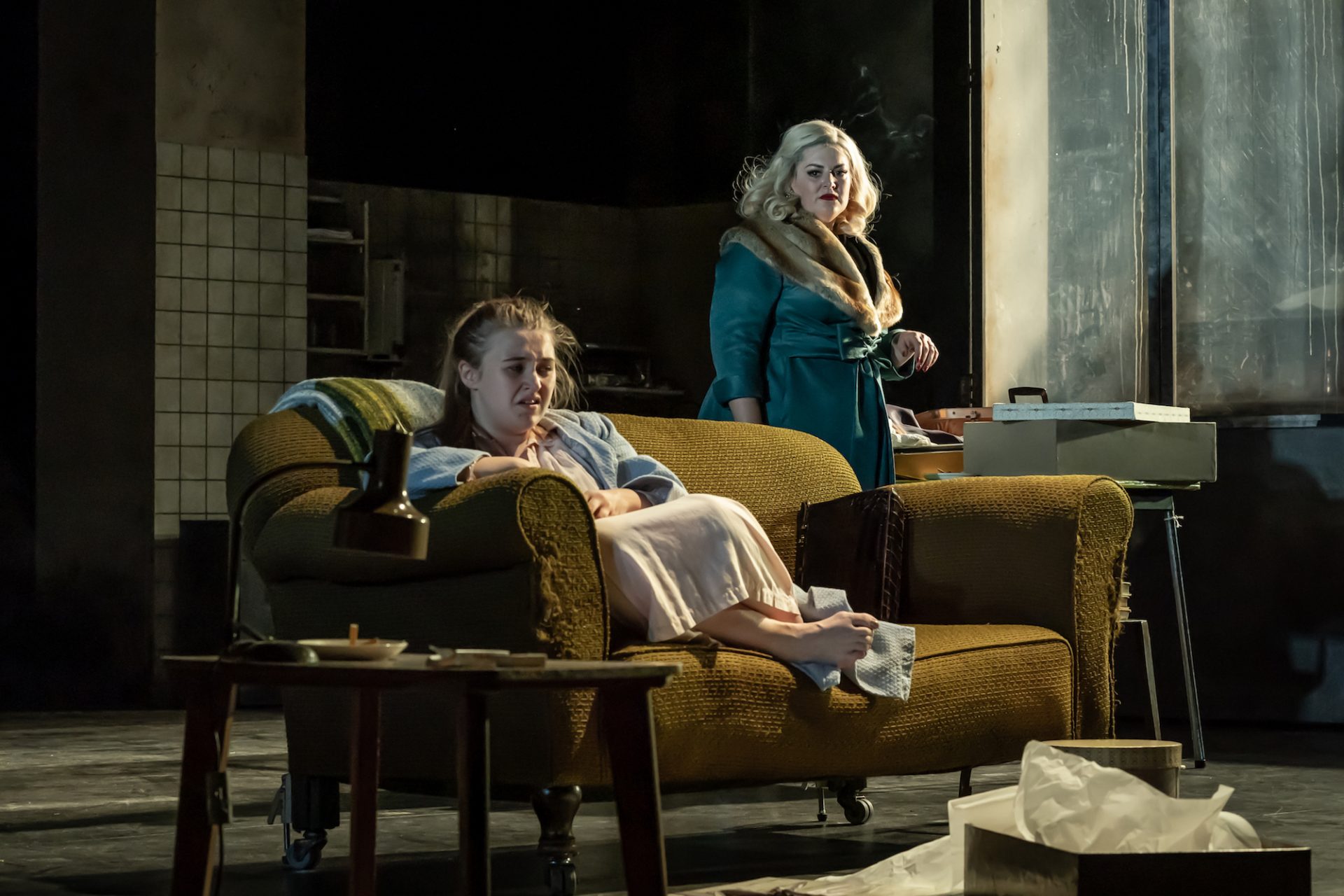The honest and provoking portrayal of the working class in 20th-century Britain is, in theatre, almost synonymous with Shelagh Delaney’s 1958 play A Taste of Honey. Bijan Sheibani has brought the drama back to life with an ambitious set and live musical accompaniment. The end result does not have the emotional heft that it should, but falls back on some strong performances and Delaney’s incendiary script in order to power through.
The tall, looming grey sets and staging make for gargantuan efforts to change scenes; efforts made like a well-oiled machine. The set feels like it is sapping the life from its characters, like the situation they find themselves in – fitting for a play where mortality features so heavily in the dialogue. The look of the stage action is a downtrodden one, capturing the bleakness and stripped back manner that Delaney evokes so well in her play.
However, this same feeling is not evoked by the favouring of comedy over drama. Sheibani leans heavily on the comedy side of things compared to previous iterations, such as the 1961 film. At moments where you expect there to be poignant conversations and frank discussions, a slice of humour is thrown in that stops them taking off. Not helping is that, on such a vast stage, what are meant to be the most powerful interactions between characters happen when the actors are stood quite a distance from one another. Their confrontations and relationships lack the claustrophobic edge of a small run-down flat in Sheffield. The kitchen sink realism has not been totally washed down the drain, but the story’s raw power seems to go amiss.
Fortunately most of the laughs at least get a rise from the audience, and it never drifts too far from Delaney’s phenomenally crafted dialogue. Free-flowing and natural, yet weighed with significance, it is the beating heart of A Taste of Honey. Delaney’s words are brought to life by the cast for whom they roll off the tongue: none more so than Helen (Jodie Prenger) and her daughter Josephine (Gemma Dobson). Prenger and Dobson provide the dynamic and drive that fuels Delaney’s incredible story, characterised by stubbornness, abrasiveness and a strange, distant affection.
A Taste of Honey is best served bitter rather than sweet. The realism of 20th-century working class life would have been the solid foundation for this adaptation. The comedic edge feels unnecessary, and the intimacy perhaps suffers on such a grand stage. Yet there is plenty to gain from a well-acted and superbly staged take on this classic story. This is the kind of show that packs the house out every night with an intrigued, engaged audience, and rightly so.
